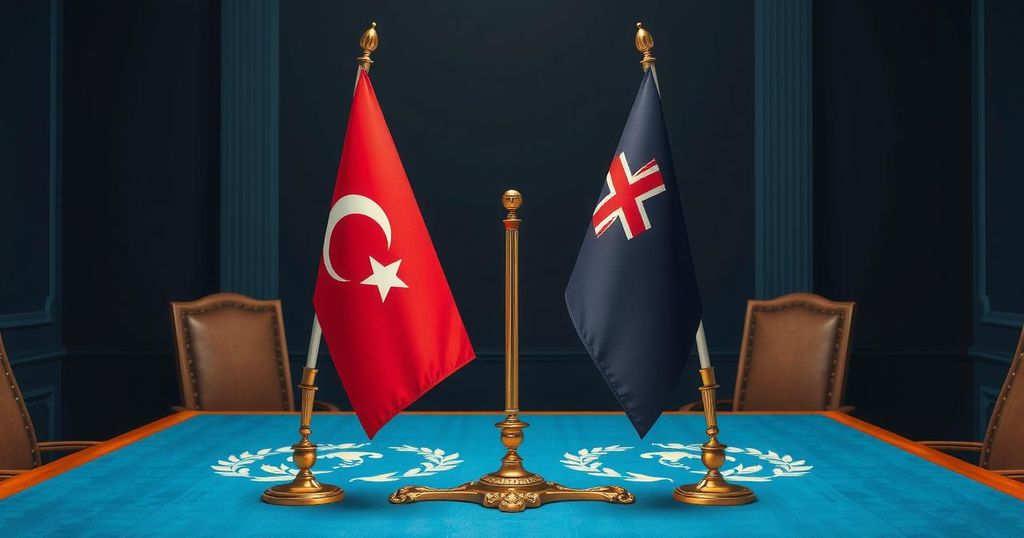Iran warned European powers against new sanctions over its nuclear program, criticizing the E3’s potential use of snapback sanctions. Foreign Minister Araghchi emphasized Iran’s openness to diplomacy, while the U.S. insists on dismantling Iran’s enrichment activities. Recent talks in Oman yielded an agreement to continue discussions, but strong differences remain.
On May 11, Iran issued a warning to Europe about potentially imposing new sanctions related to the 2015 nuclear deal, known as the Joint Comprehensive Plan of Action (JCPOA). This came just after negotiations between Iran and the United States wrapped up in Oman, as reported by IRNA on May 12. Iran’s Foreign Minister, Abbas Araghchi, made clear his discontent via social media, specifically directing his criticism at the E3—comprising the UK, France, and Germany. He cautioned that misusing the snapback mechanism to reinstate UN sanctions could have severe and lasting effects on Europe’s involvement in the deal.
Araghchi insisted that although tensions are high, the Islamic Republic is still open to diplomacy. He even suggested visiting European capitals to enhance dialogue, which had previously allowed for preliminary talks at the deputy level. Tensions peaked after the U.S. withdrew unilaterally from the JCPOA back in 2018 under President Trump, who has now threatened military action if a new agreement doesn’t materialize after returning to office this year.
In an op-ed for the French magazine Le Point, Araghchi escalated concerns, alleging that Europe is playing a “dangerous game.” He warned that invoking the snapback could lead to a “global non-proliferation crisis,” with Europe facing the worst fallout. This was underscored during the fourth round of nuclear negotiations with the US that took place in Muscat, Oman, which lasted three hours and involved Omani Foreign Minister Badr al-Busaidi.
Though the talks were marked by indirect exchanges, Iran’s Foreign Ministry described the discussions as both “difficult but useful.” From the U.S. side, special envoy Steve Witkoff noted that they reached an agreement to pursue further technical discussions. The negotiations are framed as efforts to curb Iran’s nuclear capabilities in return for easing some sanctions, yet they are fraught with complication due to differing priorities.
On one side, Iran remains adamant about maintaining its uranium enrichment program, a point it views as essential to its national sovereignty. In contrast, the U.S. has called for the dismantling of that very program and associated infrastructure. “The blood of our nuclear scientists fuels our program,” Araghchi commented during a TV interview afterward. He did mention a willingness to consider limits similar to those in previous agreements but firmly stated that Iran would not abandon enrichment altogether.
Trump’s envoy Witkoff, on the other hand, reiterated in an interview with Breitbart that any successful agreement must encompass a complete halt to all enrichment activities, which would include dismantling key facilities such as those in Natanz, Fordow, and Isfahan. The disagreement between the two sides continues to complicate potential resolutions as they approach the next rounds of negotiation.
In summary, Iran’s recent warnings reflect escalating tensions surrounding its nuclear program and the European powers’ potential sanctions through the JCPOA snapback mechanism. The situation remains precarious, especially considering the contrasting positions from both Iran and the United States regarding uranium enrichment and sanctions. As diplomatic efforts continue, the outcome hangs in a delicate balance, with serious implications for global non-proliferation.
Original Source: thecradle.co






